
The Historical Heart of Amritsar: Jallianwala Bagh
Jallianwala Bagh, located in the vibrant city of Amritsar, India, stands as a haunting yet essential testament to the struggles and sacrifices that shaped India's path to independence. This public garden is not just a place of reflection but also a significant historical landmark that offers a poignant reminder of the Jallianwala Bagh Massacre of 1919. Visitors can walk through the lush greenery and see the preserved bullet marks on the walls, making it a somber yet educational experience. The Bagh is situated just a stone's throw away from the Golden Temple, making it easy to combine a visit to both these iconic locations in a single day. As you stroll through the garden, you will encounter various memorials and a central flame that burns in memory of those who lost their lives. The Martyrs' Gallery within the garden provides a comprehensive account of the tragic events, offering a deeper understanding of its historical significance. A visit to Jallianwala Bagh is not just a journey into the past; it's also an opportunity to appreciate the resilience and bravery of the Indian people. While the atmosphere is inevitably solemn, the garden itself is beautifully maintained, providing a serene backdrop to what was once a site of unimaginable horror. Whether you're a history buff or simply someone looking to understand more about India's rich past, Jallianwala Bagh is a must-visit destination in Amritsar.
Local tips in Jallianwala Bagh
- Visit early in the morning to avoid crowds and experience a quieter, more reflective atmosphere.
- Combine your visit with a trip to the nearby Golden Temple for a full day of historical and cultural exploration.
- Read up on the Jallianwala Bagh Massacre beforehand to fully appreciate the significance of the site.
- Wear comfortable walking shoes, as you'll be spending a fair amount of time on your feet.
- Respect the solemn nature of the site and maintain a quiet demeanor during your visit.
The Historical Heart of Amritsar: Jallianwala Bagh
Jallianwala Bagh, located in the vibrant city of Amritsar, India, stands as a haunting yet essential testament to the struggles and sacrifices that shaped India's path to independence. This public garden is not just a place of reflection but also a significant historical landmark that offers a poignant reminder of the Jallianwala Bagh Massacre of 1919. Visitors can walk through the lush greenery and see the preserved bullet marks on the walls, making it a somber yet educational experience. The Bagh is situated just a stone's throw away from the Golden Temple, making it easy to combine a visit to both these iconic locations in a single day. As you stroll through the garden, you will encounter various memorials and a central flame that burns in memory of those who lost their lives. The Martyrs' Gallery within the garden provides a comprehensive account of the tragic events, offering a deeper understanding of its historical significance. A visit to Jallianwala Bagh is not just a journey into the past; it's also an opportunity to appreciate the resilience and bravery of the Indian people. While the atmosphere is inevitably solemn, the garden itself is beautifully maintained, providing a serene backdrop to what was once a site of unimaginable horror. Whether you're a history buff or simply someone looking to understand more about India's rich past, Jallianwala Bagh is a must-visit destination in Amritsar.
Iconic landmarks you can’t miss
Jallianwala Bagh
Explore Jallianwala Bagh, a historic memorial park in Amritsar that honors the sacrifices made for India's freedom, set amidst serene gardens.
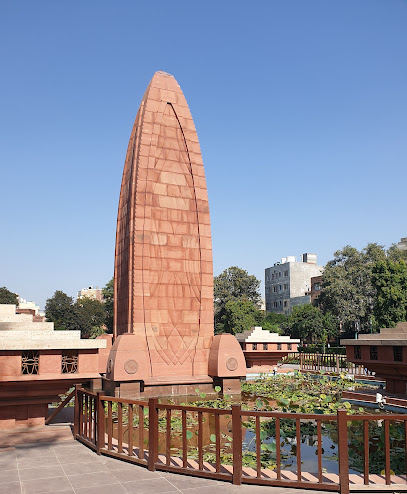
Martyrs Well
A somber memorial in Amritsar's Jallianwala Bagh, commemorating the victims of the 1919 massacre and their struggle for independence.
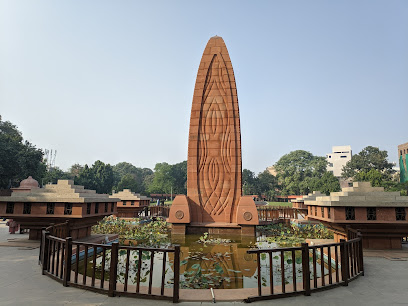
Jallianwala Bagh Museum
A poignant memorial in Amritsar commemorating the Jallianwala Bagh massacre and India's struggle for independence.
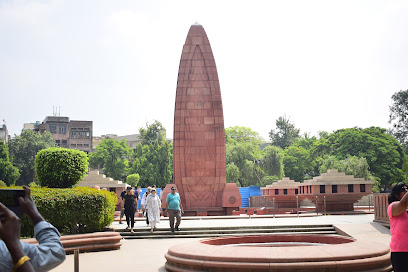
Bullet Marks site 2
Reflect on history at Amritsar's Bullet Marks Site 2, a powerful memorial to India's past struggles and enduring spirit.
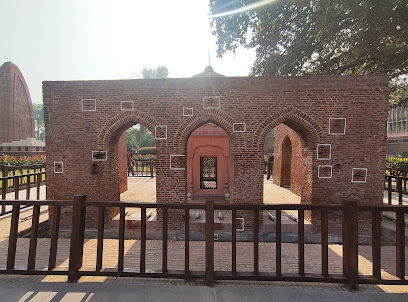
Jalianwala Bagh Garden
A poignant memorial in Amritsar, commemorating the tragic Jallianwala Bagh Massacre and honoring the martyrs of Indian independence.
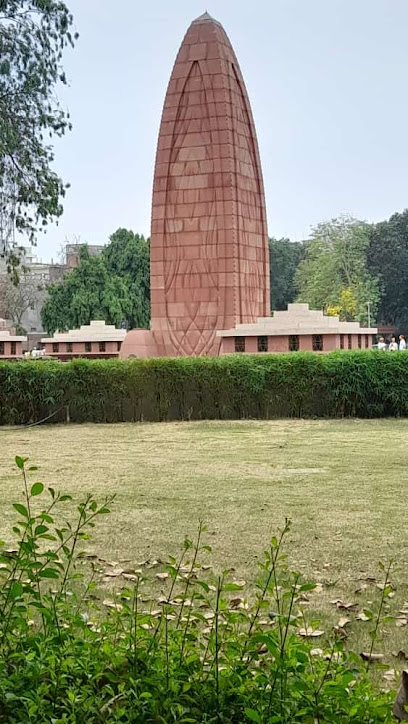
Martyrs' Obelisk
A solemn memorial in Amritsar commemorating the Jallianwala Bagh Massacre and the sacrifices for Indian independence.
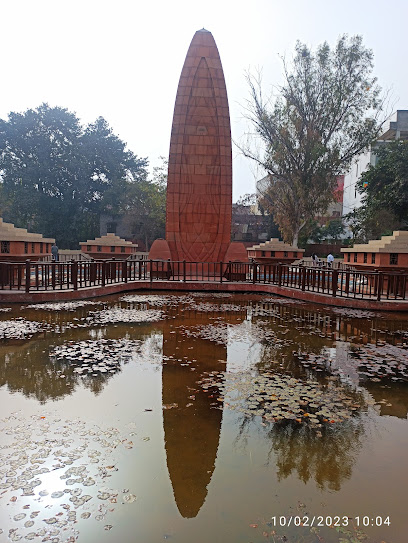
Sculpture in Honour of the Martyrs of Jallianwala Bagh
A solemn tribute to the martyrs of the Jallianwala Bagh massacre, capturing the spirit of resistance and the quest for justice in Amritsar.
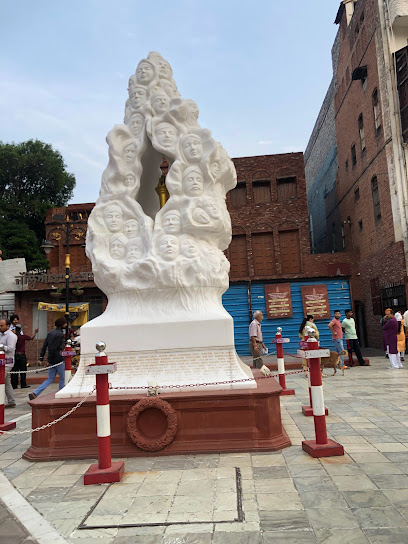
Martyrs of Jallianwala Bagh
A somber memorial in Amritsar, marking the site of the 1919 Jallianwala Bagh Massacre and honoring the victims of this tragic event.
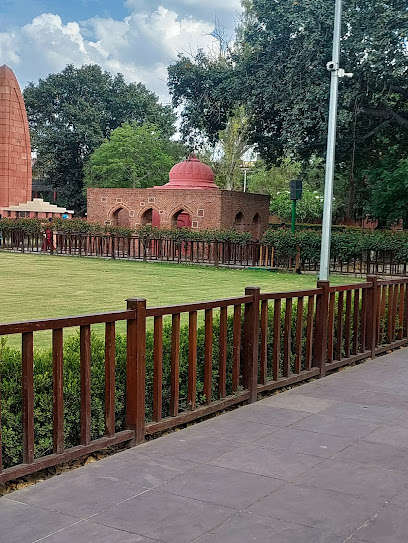
Udham Singh Statue Jallianwala Bagh
A memorial to Udham Singh, the revolutionary who avenged the Jallianwala Bagh massacre, symbolizing bravery and sacrifice.
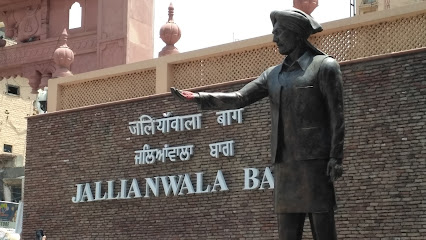
Statue of Jarnail Hari Singh Nalwa
A majestic statue in Amritsar honoring Jarnail Hari Singh Nalwa, a celebrated Sikh general and symbol of valor and leadership.
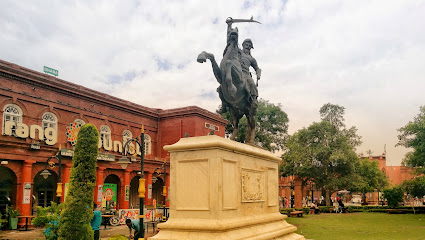
Unmissable attractions to see
Jallianwala Bagh
A poignant memorial in Amritsar, Jallianwala Bagh commemorates the 1919 massacre and India's struggle for independence.
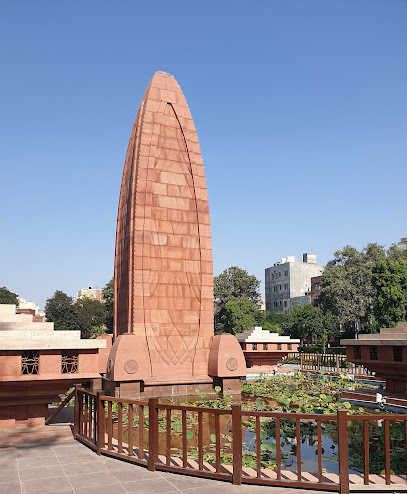
The Partition Museum - Amritsar District, Punjab, India
A moving museum in Amritsar preserving the stories and memories of the 1947 partition, honoring the resilience of the human spirit.
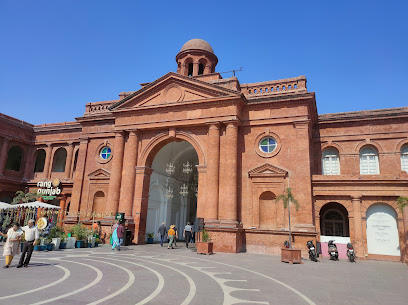
Martyrs Well
A poignant memorial in Amritsar honoring the victims of the Jallianwala Bagh Massacre and their sacrifice.
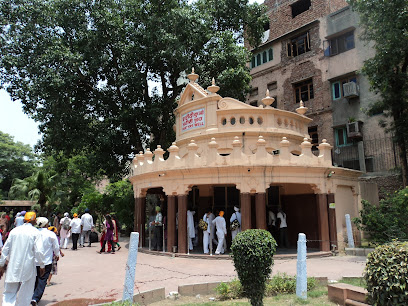
Gol Bagh
Escape to Amritsar's Gol Bagh: A historic park offering tranquility, recreation, and a refreshing connection with nature.
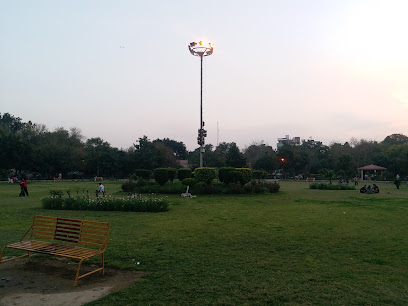
Central Sikh Museum
Discover Sikh history and culture at the Central Sikh Museum, a treasure trove of artifacts and stories within Amritsar's Golden Temple.
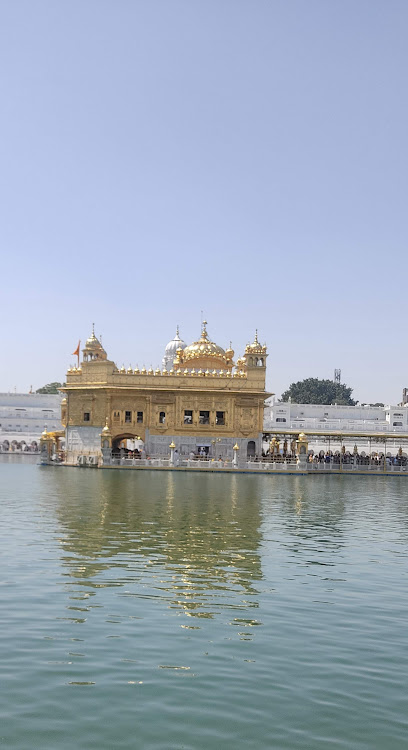
Jalianwala Bag Centenary Memorial
A poignant memorial in Amritsar commemorating the Jallianwala Bagh Massacre and honoring the spirit of Indian independence.
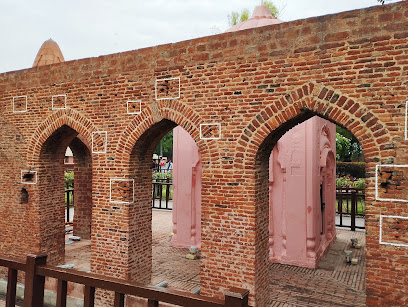
Jalianwala Bagh Garden
Discover the historic Jalianwala Bagh Garden in Amritsar, a tranquil memorial reflecting the resilience of India's past amidst beautiful landscapes.
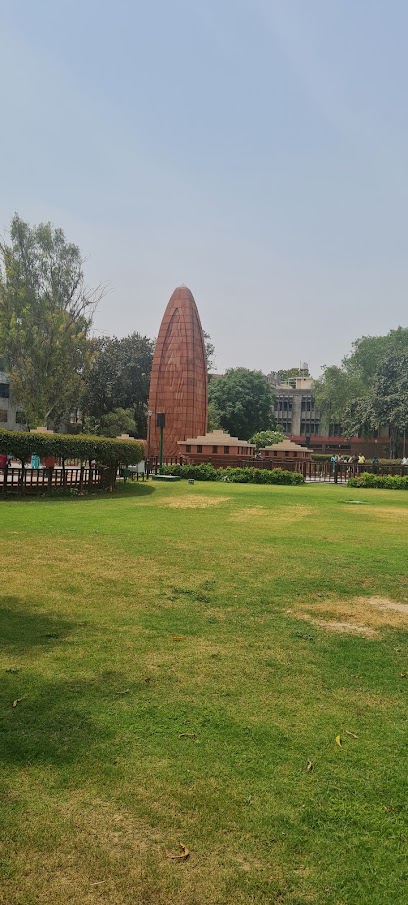
Martyrs' Obelisk
A solemn memorial in Amritsar commemorating the Jallianwala Bagh Massacre and the lives lost in the fight for Indian independence.
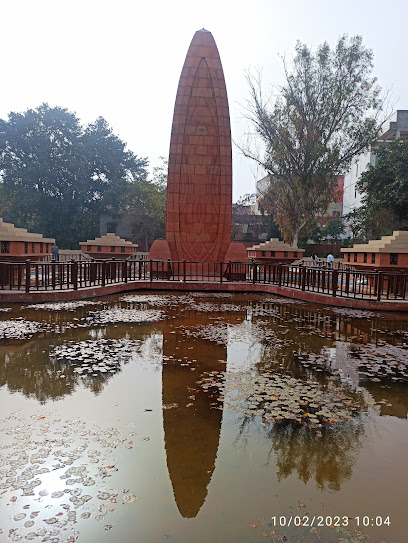
Monument
Discover the rich heritage of Punjab at the stunning Monument in Amritsar, a must-visit tourist attraction showcasing history and culture.
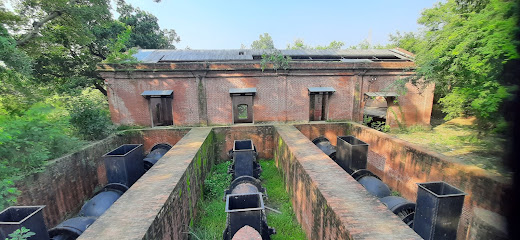
Amar Jyoti
A serene memorial park in Amritsar, honoring the victims of the Jallianwala Bagh massacre and India's fight for freedom.
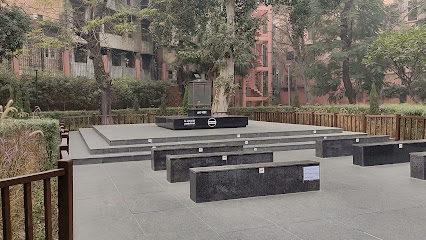
Essential places to dine
Bhai Kulwant Singh Kulchian Wale
Experience authentic Punjabi vegetarian cuisine at Bhai Kulwant Singh Kulchian Wale near the Golden Temple in Amritsar.
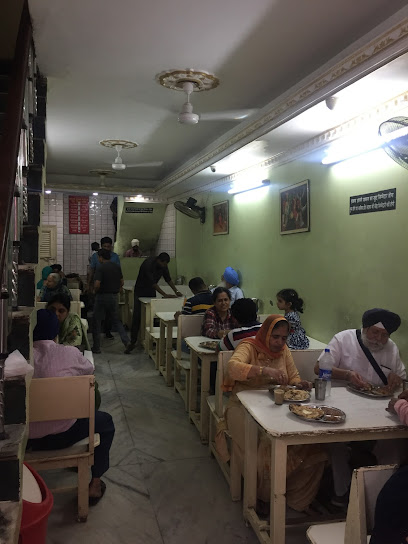
Masala Darbaar - The Best Restaurant in Amritsar | Best Food in Amritsar
Experience authentic North Indian cuisine at Masala Darbaar in Amritsar – where every bite tells a story.
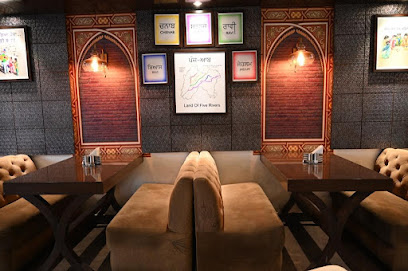
Sanjha Chulha Amritsari Kulcha Specialist
Experience authentic North Indian flavors at Sanjha Chulha, renowned for its scrumptious Amritsari kulchas in vibrant Amritsar.
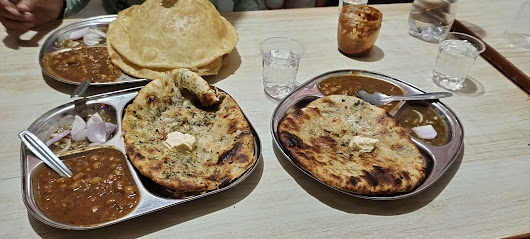
Zayka Restaurant
Experience authentic Punjabi cuisine at Zayka Restaurant near Golden Temple – where tradition meets flavor in every bite.
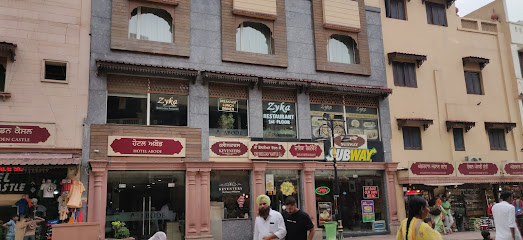
Amritsar Bites
Discover authentic Punjabi cuisine at Amritsar Bites – where every meal tells a story.
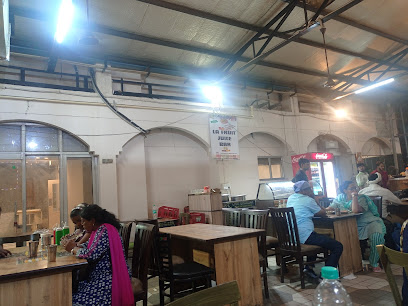
Amritsari Taste
Discover authentic Punjabi cuisine at Amritsari Taste – where tradition meets flavor in every delightful dish.
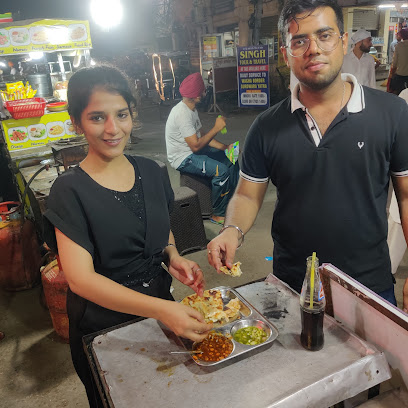
Tasty Bite
Experience delectable fast food at Tasty Bite near Golden Temple in Amritsar – where local flavors meet quick service.
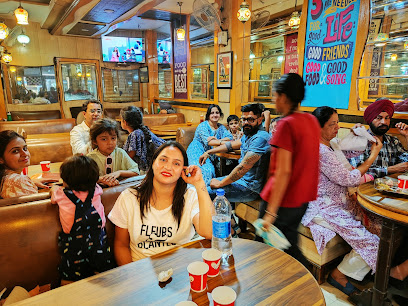
Amritsari Rasoi by golden grain
Discover authentic Punjabi cuisine at Amritsari Rasoi in Amritsar’s lively Bazaar Jallian Wala Bagh—where tradition meets flavor.
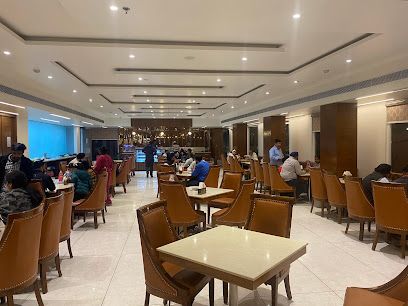
Tawey Wale Amritsar
Experience authentic Punjabi cuisine at Tawey Wale Amritsar - where every bite tells a story.
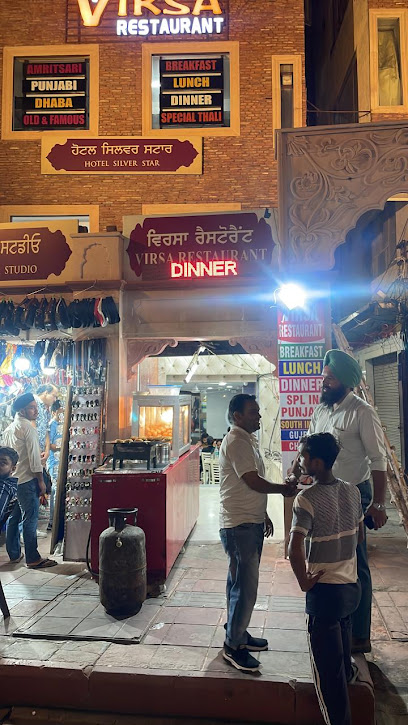
D.S.Restaurant
Experience authentic Punjabi flavors at D.S. Restaurant, located near Jallianwala Bagh in Amritsar, offering breakfast delights and fast food favorites.
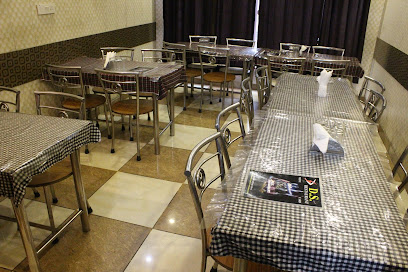
Markets, malls and hidden boutiques
Raja Exclusive | Phulkari in Amritsar Phulkari suit in Amritsar Phulkari Dupatta in Amritsar |
Explore the vibrant world of Phulkari at Raja Exclusive in Amritsar, where tradition meets contemporary fashion in stunning attire.
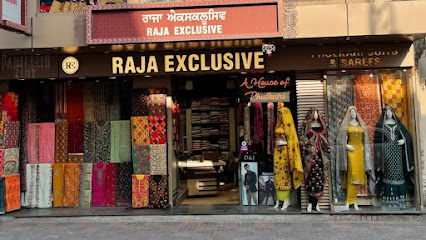
Punjabi juttis
Discover the art of Punjabi juttis in Amritsar, where tradition, craftsmanship, and vibrant culture come together for an unforgettable shopping experience.

PhulkariWorld
Experience the essence of Punjab at PhulkariWorld, your go-to casual clothing store near the Golden Temple in Amritsar.
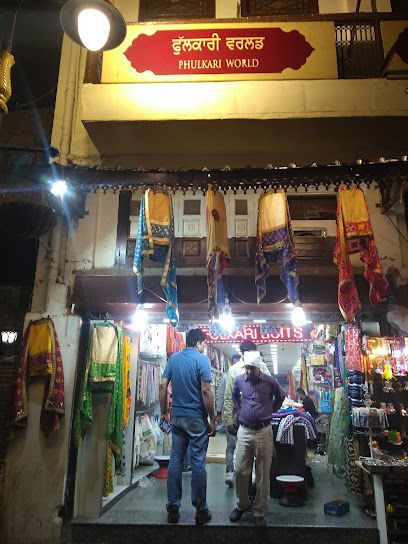
Pinki Di Hatti ( PDH) --- best papar warian masale store in amritsar
Explore the vibrant world of spices at Pinki Di Hatti, Amritsar's finest destination for authentic Indian masalas.

New Mochi Punjabi Jutti
Explore the vibrant world of traditional Punjabi craftsmanship at New Mochi Punjabi Jutti, a captivating shoe store in Amritsar.
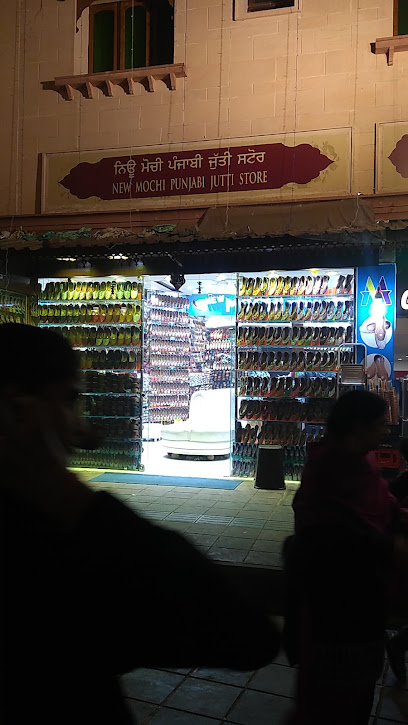
Fancy Gift House
Explore the vibrant selection of unique handicrafts and memorable souvenirs at Fancy Gift House in Amritsar, a must-visit destination for tourists.
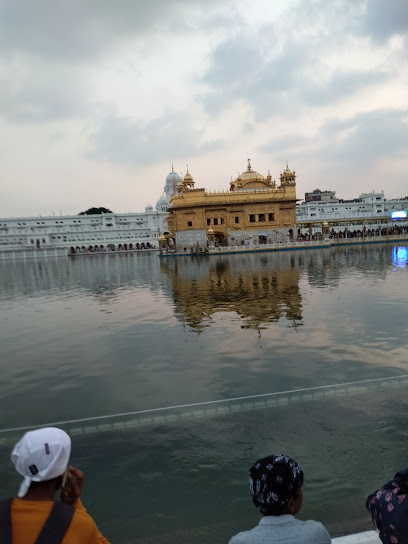
Mohni Garments
Explore vibrant fashion at Mohni Garments in Amritsar, featuring traditional and contemporary clothing for all styles and occasions.
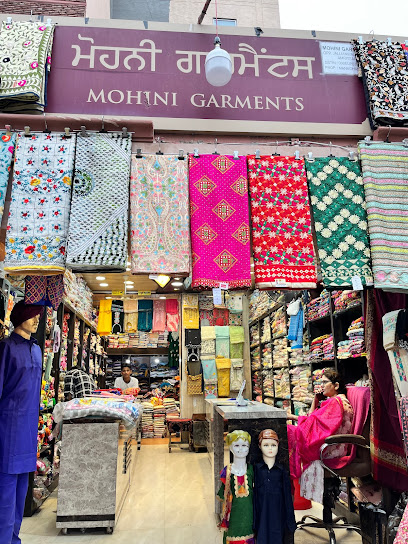
B.JAWAHAR SINGH KIRPAL SINGH &Co
Discover a treasure trove of literature at B.JAWAHAR SINGH KIRPAL SINGH & Co, a charming bookstore in the heart of Amritsar near the Golden Temple.
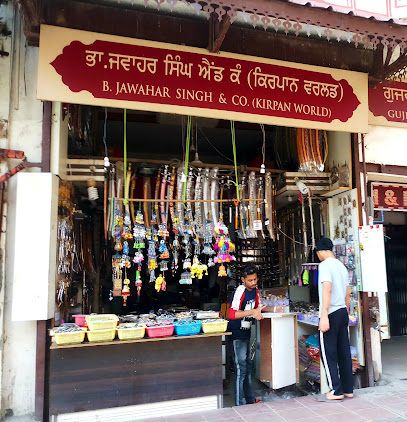
India studio And gift Shop
Explore the rich craftsmanship at India Studio and Gift Shop in Amritsar, where every item tells a story of tradition and creativity.
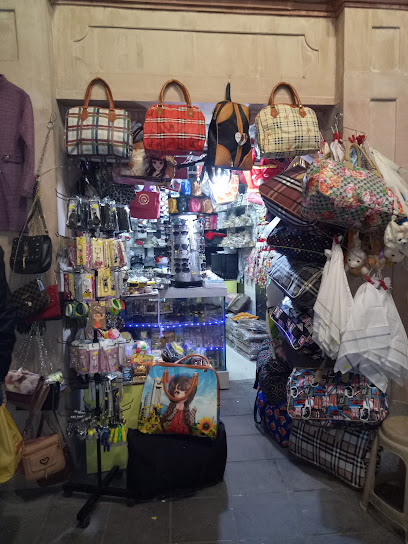
Katra kanhaiya
Discover the vibrant clothing styles of Punjab at Katra Kanhaiya, a must-visit destination for fashion lovers in Amritsar.
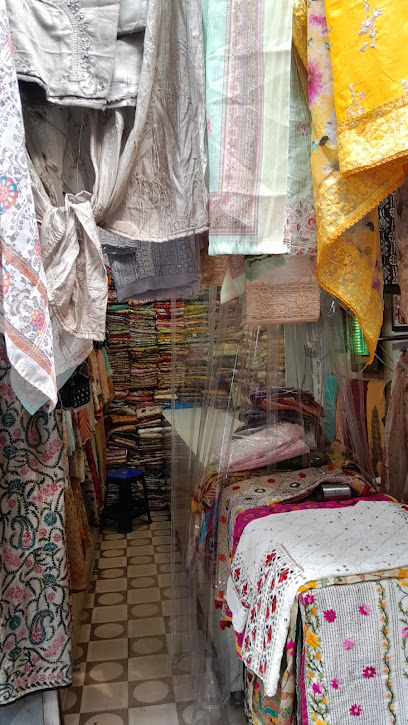
Essential bars & hidden hideouts
Peddlers
Discover Peddlers, the vibrant pub in Amritsar offering delightful food, an extensive drink menu, and a lively atmosphere for every traveler.
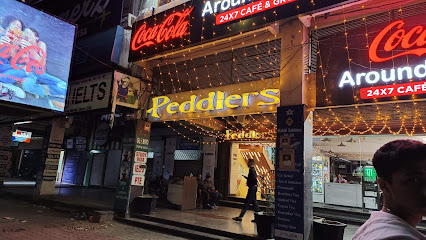
Irish Beach
Savor the vibrant flavors at Irish Beach, Amritsar's ultimate grill restaurant, bar, and club experience for food lovers.
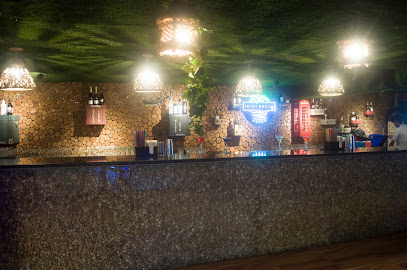
Bon's Adda - Garden Cafe | Best Clubs in Amritsar
Experience the vibrant culinary scene at Bon's Adda, Amritsar's premier garden cafe and club offering delightful dishes and lively entertainment.
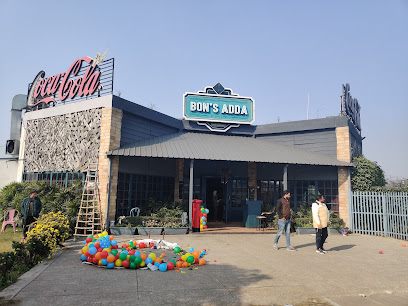
Masala Darbaar - The Best Restaurant in Amritsar | Best Food in Amritsar
Discover the authentic taste of Punjab at Masala Darbaar, a top-rated restaurant in Amritsar known for its delicious flavors and welcoming ambiance.
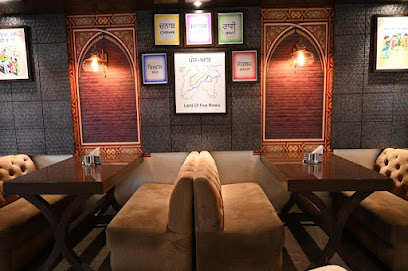
Papa Whiskey Amritsar
Experience the lively atmosphere and unique flavors at Papa Whiskey Amritsar, a must-visit bar and brewpub in the heart of Punjab.
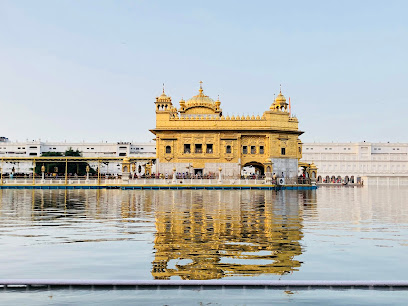
Egyptian Brewery | Best bar & Pub In Ranjit avenue Amritsar- Restro Bar in amritsar- best Night Club in Amritsar
Experience the vibrant nightlife of Amritsar at the Egyptian Brewery, where delicious cuisine meets lively entertainment.

The Liquid Room- Best Pub, Club/Bar In Amritsar
Experience the vibrant nightlife at The Liquid Room in Amritsar, where exquisite drinks, modern ambiance, and lively music await.
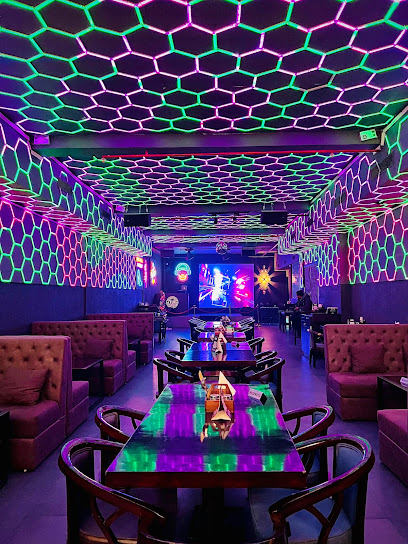
Rebels Restro & Bar (By Meltdown)
Experience the perfect blend of grilled delights and a vibrant bar atmosphere at Rebels Restro & Bar in Amritsar.
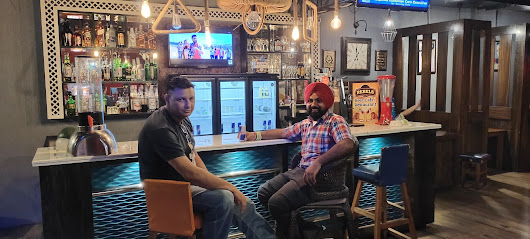
BAR XCHANGE
Discover the lively spirit of Amritsar at Bar Xchange, a dynamic pub offering delicious drinks, vibrant ambiance, and a unique pricing experience.
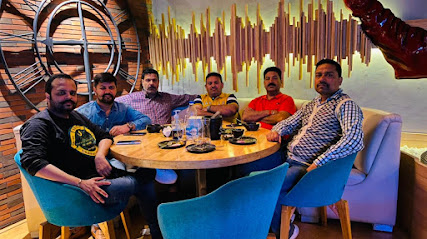
Texas Bar & Grill
Experience the best of Amritsar’s culinary scene at Texas Bar & Grill, where delicious food meets vibrant nightlife.
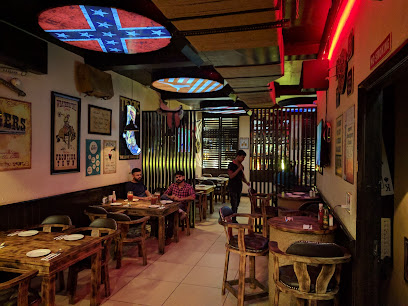
Local Phrases
-
- Helloਸਤ ਸ੍ਰੀ ਅਕਾਲ
[sat sri akal] - Goodbyeਅਲਵਿਦਾ
[alvida] - Yesਹਾਂ
[haan] - Noਨਹੀਂ
[nahi] - Please/You're welcomeਕਿਰਪਾ ਕਰਕੇ
[kirpa karke] - Thank youਧੰਨਵਾਦ
[dhannvaad] - Excuse me/Sorryਮੁਆਫ ਕਰਨਾ
[muaf karna] - How are you?ਤੁਸੀਂ ਕਿਵੇਂ ਹੋ?
[tusi kiven ho?] - Fine. And you?ਠੀਕ ਹਾਂ। ਤੁਸੀਂ?
[thik haan. tusi?] - Do you speak English?ਕੀ ਤੁਸੀਂ ਅੰਗਰੇਜ਼ੀ ਬੋਲਦੇ ਹੋ?
[ki tusi angrezi bolde ho?] - I don't understandਮੈਨੂੰ ਸਮਝ ਨਹੀਂ ਆ ਰਿਹਾ
[mainu samajh nahi aa raha]
- Helloਸਤ ਸ੍ਰੀ ਅਕਾਲ
-
- I'd like to see the menu, pleaseਕਿਰਪਾ ਕਰਕੇ ਮੈਨੂੰ ਮੀਨੂ ਵੇਖਣ ਦਿਓ
[kirpa karke mainu menu vekhan dio] - I don't eat meatਮੈਂ ਮੰਸਾਹਾਰ ਨਹੀਂ ਖਾਂਦਾ
[main mansahar nahi khandha] - Cheers!ਚੀਅਰਸ!
[cheers!] - I would like to pay, pleaseਕਿਰਪਾ ਕਰਕੇ ਮੈਂ ਭੁਗਤਾਨ ਕਰਨਾ ਚਾਹੁੰਦਾ ਹਾਂ
[kirpa karke main bhugtan karna chahunda haan]
- I'd like to see the menu, pleaseਕਿਰਪਾ ਕਰਕੇ ਮੈਨੂੰ ਮੀਨੂ ਵੇਖਣ ਦਿਓ
-
- Help!ਮਦਦ ਕਰੋ!
[madad karo!] - Go away!ਚਲੋ ਹਟੋ!
[chalo hato!] - Call the Police!ਪੁਲਿਸ ਨੂੰ ਬੁਲਾਓ!
[police nu bulao!] - Call a doctor!ਡਾਕਟਰ ਨੂੰ ਬੁਲਾਓ!
[doctor nu bulao!] - I'm lostਮੈਂ ਗੁਮ ਹੋ ਗਿਆ ਹਾਂ
[main gum ho gia haan] - I'm illਮੈਂ ਬੀਮਾਰ ਹਾਂ
[main beemar haan]
- Help!ਮਦਦ ਕਰੋ!
-
- I'd like to buy...ਮੈਂ ਖਰੀਦਣਾ ਚਾਹੁੰਦਾ ਹਾਂ...
[main khareedna chahunda haan...] - I'm just lookingਮੈਂ ਬਸ ਦੇਖ ਰਿਹਾ ਹਾਂ
[main bas dekh raha haan] - How much is it?ਇਸਨੂੰ ਕਿੰਨਾ ਲੱਗੇਗਾ?
[isnu kinn laggega?] - That's too expensiveਇਹ ਬਹੁਤ ਮਹਿੰਗਾ ਹੈ
[eh bahut mahanga hai] - Can you lower the price?ਕੀ ਤੁਸੀਂ ਕੀਮਤ ਘਟਾ ਸਕਦੇ ਹੋ?
[ki tusi keemat ghata sakde ho?]
- I'd like to buy...ਮੈਂ ਖਰੀਦਣਾ ਚਾਹੁੰਦਾ ਹਾਂ...
-
- What time is it?ਕਿੰਨੇ ਵਜੇ ਹਨ?
[kinne vaje han?] - It's one o'clockਇਸ ਨੂੰ ਇੱਕ ਵਜੇ ਹਨ
[is nu ik vaje han] - Half past (10)(10) ਦਾ ਅੱਧਾ
[(10) da adha] - Morningਸਵੇਰ
[saver] - Afternoonਦੁਪਹਿਰ
[dopher] - Eveningਸ਼ਾਮ
[shaam] - Yesterdayਕੱਲ
[kal] - Todayਅੱਜ
[ajj] - Tomorrowਕਲ
[kal] - 1ਇੱਕ
[ik] - 2ਦੋ
[do] - 3ਤਿੰਨ
[tinn] - 4ਚਾਰ
[chaar] - 5ਪੰਜ
[panj] - 6ਛੇ
[chhe] - 7ਸੱਤ
[sat] - 8ਅੱਠ
[ath] - 9ਨੌ
[nau] - 10ਦਸ
[das]
- What time is it?ਕਿੰਨੇ ਵਜੇ ਹਨ?
-
- Where's a/the...?...ਕਿੱਥੇ ਹੈ?
[...kithay hai?] - What's the address?ਪਤਾ ਕੀ ਹੈ?
[pata ki hai?] - Can you show me (on the map)?ਕੀ ਤੁਸੀਂ ਮੈਨੂੰ (ਨਕਸ਼ੇ 'ਤੇ) ਦਿਖਾ ਸਕਦੇ ਹੋ?
[ki tusi mainu (naksha te) dikha sakde ho?] - When's the next (bus)?ਅਗਲੀ (ਬੱਸ) ਕਦੋਂ ਹੈ?
[agli (bus) kadon hai?] - A ticket (to ....)ਇੱਕ ਟਿਕਟ (.... ਲਈ)
[ik ticket (... lai)]
- Where's a/the...?...ਕਿੱਥੇ ਹੈ?
History of Jallianwala Bagh
-
Jallianwala Bagh, a public garden in Amritsar, was established in the late 19th century. It served as a gathering place for locals and a venue for various events. The garden, which spans approximately six acres, reflects the traditional landscape architecture of the time, incorporating trees, pathways, and a central well, becoming a cherished space for the community.
-
The most significant event in Jallianwala Bagh's history occurred on April 13, 1919, when British troops, under the command of General Dyer, opened fire on a peaceful gathering of thousands of Indians protesting against repressive laws imposed by the British Raj. This brutal massacre resulted in the deaths of hundreds and left a lasting scar on the Indian psyche, igniting the national freedom struggle.
-
Following the massacre, Jallianwala Bagh became a symbol of resistance against British colonial rule. The tragic event led to widespread outrage across India and prompted significant political shifts. The incident galvanized the Indian independence movement, leading to increased demands for self-rule and civil rights.
-
In 1951, the Government of India established a memorial at Jallianwala Bagh to commemorate the victims of the 1919 massacre. The memorial features an eternal flame, a museum, and inscriptions that honor those who lost their lives. It serves as a poignant reminder of the sacrifices made in the struggle for freedom and is visited by millions each year.
-
Jallianwala Bagh stands as a testament to the resilience of the Indian spirit. The garden and its memorial have become a focal point for discussions on colonialism, human rights, and the importance of remembrance in shaping national identity. The site continues to host cultural events and educational programs aimed at fostering awareness and understanding of India's historical struggles.
Jallianwala Bagh Essentials
-
Jallianwala Bagh is centrally located in Amritsar, making it easily accessible from various neighbourhoods. If you are arriving from the Amritsar Railway Station, you can take a taxi or an auto-rickshaw, which will take about 15-20 minutes. Buses also connect to the area, with frequent services from key points in the city. If you are near the Golden Temple, Jallianwala Bagh is within walking distance, approximately a 10-minute walk.
-
Jallianwala Bagh is a compact area, and walking is the best way to explore it. The site itself is pedestrian-friendly, allowing visitors to immerse themselves in its history. Auto-rickshaws and cycle-rickshaws are available for hire nearby. If you prefer a bicycle, several local shops offer rentals. Public buses can be used for longer distances, but within Jallianwala Bagh, walking is encouraged.
-
Jallianwala Bagh is generally safe for tourists during the day. However, like any tourist area, it is prudent to remain vigilant, especially in crowded areas. Avoid wandering into less populated streets at night. While there are no specific high-crime areas targeting tourists, petty theft can occur, so keep your belongings secure and be cautious of your surroundings.
-
In case of an emergency, dial 100 for police assistance and 102 for ambulances in India. The nearest hospital is Guru Nanak Dev Hospital, about 2 kilometers away. It's advisable to have travel insurance that covers medical emergencies. For minor issues, local pharmacies are available for over-the-counter medications.
-
Fashion: Do dress modestly, especially when visiting religious sites nearby like the Golden Temple. Avoid wearing shorts or revealing clothing. Religion: Do respect local customs. When visiting religious sites, remove your shoes and cover your head. Public Transport: Do be courteous and offer your seat to the elderly. Don't talk loudly or engage in disruptive behavior on public transport. Greetings: Do greet with 'Sat Sri Akal' and a smile. Avoid overly casual greetings. Eating & Drinking: Do try local Punjabi dishes from nearby eateries. Don't consume food or drinks in Jallianwala Bagh itself, as it is a memorial site.
-
To experience Jallianwala Bagh like a local, visit early in the morning for a quieter atmosphere and to reflect on its historical significance. Engage with local historians or guides who often share captivating stories about the site. After your visit, explore the nearby markets to taste authentic street food and shop for local handicrafts. Lastly, consider visiting the nearby Partition Museum to gain deeper insights into the region's history.
Trending Landmarks in Jallianwala Bagh
Nearby Cities to Jallianwala Bagh
-
Things To Do in Lahore
-
Things To Do in Gujranwala
-
Things To Do in Sialkot
-
Things To Do in Jammu
-
Things To Do in Faisalabad
-
Things To Do in Shimla
-
Things To Do in Manali
-
Things To Do in Rawalpindi
-
Things To Do in Islamabad
-
Things To Do in Murree
-
Things To Do in Abbottabad
-
Things To Do in Multan
-
Things To Do in Rishikesh
-
Things To Do in Kaghan
-
Things To Do in Leh








